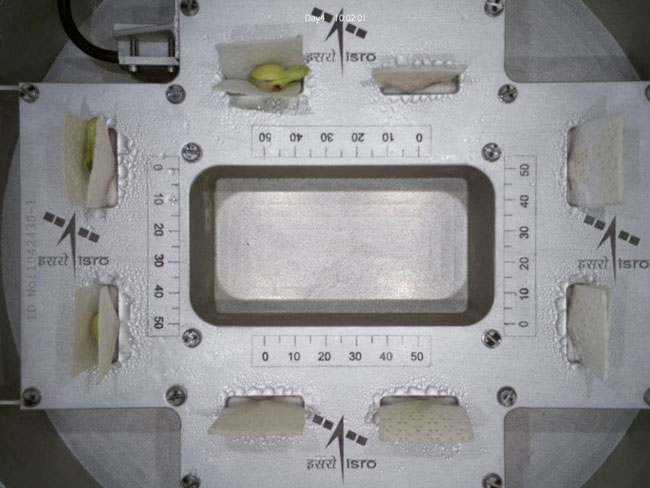Desk:The Indian Space Research Organisation (ISRO) has achieved another milestone in space exploration. On Saturday, ISRO shared on X (formerly Twitter) that seeds sprouted in space under microgravity conditions. The seeds, placed on the POEM-4 platform of the PSLV-C60 spacecraft, began germinating within four days. The seeds, resembling cowpea, are expected to grow leaves soon.
ISRO mentioned that eight seeds were sent to space as part of the Compact Research Module for Orbital Plant Studies (CROPS) experiment. The test was conducted by the Vikram Sarabhai Space Centre. The PSLV-C60 mission had launched two SpaceX satellites into orbit on December 30. According to reports, the POEM-4 platform is in Earth’s orbit, and 24 different experiments are being conducted 350 kilometers above the Earth.
Why This Experiment?
ISRO explained that the purpose of sprouting seeds in space is to study how plants grow in adverse conditions. The results will help in developing strategies for future space missions and understanding how plants can adapt in space.
Chaser Satellite Raises Hopes
In another significant development, ISRO shared a selfie video of the Chaser satellite during a space docking experiment on X. The satellite is orbiting at a distance of 470 kilometers from Earth. If successful, India will join Russia, the United States, and China as the fourth country to achieve this feat.
Seed Sprouting Setup in Space
Scientists ensured all necessary arrangements for the seed sprouting experiment in space. This included monitoring camera imaging, oxygen, carbon dioxide levels, temperature, and soil moisture to maintain a balanced environment for the seeds. Scientists are currently analyzing the data from the experiment.




